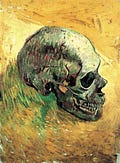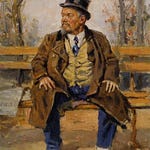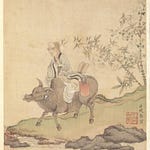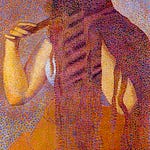Welcome to Sundays with Seneca on the Perennial Meditations podcast. Join the search for ancient lessons for modern life in the writing and Stoic philosophy of Lucius Annaeus Seneca.
In a letter known today as On Old Age and Death, Seneca wrote,
I was just lately telling you that I was within sight of old age. I am now afraid that I have left old age behind me. For some other word would now apply to my years, or at any rate to my body, since old age means a time of life that is weary rather than crushed. You may rate me in the worn-out class of those who are nearing the end.
Nevertheless, I offer thanks to myself, with you as a witness, for I feel that age has done no damage to my mind, though I feel its effects on my constitution. Only my vices, and the outward aids to these vices, have reached senility; my mind is strong and rejoices that it has but a slight association with the body. It has laid aside the greater part of its load. It is alert; it takes issue with me on the subject of old age; it declares that old age is its time of bloom.
Let me take it at its word, and let it make the most of the advantages it possesses. The mind bids me to do some thinking and consider how much of this peace of spirit and moderation of character I owe to wisdom and how much to my time of life; it bids me distinguish carefully what I cannot do and what I do not want to do. . . . For why should one complain or regard it as a disadvantage if powers which ought to come to an end have failed?
“But,” you say, “it is the greatest possible disadvantage to be worn out and to die off, or rather, if I may speak literally, to melt away! For we are not suddenly smitten and laid low; we are worn away, and every day reduces our powers to a certain extent.”
But is there any better end to it all than to glide off to one’s proper haven when nature slips the cable? Not that there is anything painful in a shock and a sudden departure from existence; it is merely because this other way of departure is easy—a gradual withdrawal. […]
Put aside the opinion of the world; it is always wavering and always takes both sides. Put aside the studies which you have pursued throughout your life; Death will deliver the final judgment in your case. This is what I mean: your debates and learned talks, your maxims gathered from the teachings of the wise, your cultured conversation—all these afford no proof of the real strength of your soul. Even the most timid man can deliver a bold speech. What you have done in the past will be manifest only at the time when you draw your last breath. I accept the terms; I do not shrink from the decision.”
Epicurus will oblige me with these words: “Think on death,” or rather, if you prefer the phrase, on “migration to heaven.” The meaning is clear—that it is a wonderful thing to learn thoroughly how to die. You may deem it superfluous to learn a text that can be used only once, but that is just the reason why we ought to think about a thing. When we can never prove whether we really know a thing, we must always be learning it.
“Think on death.” In saying this, he bids us to think on freedom.
—
Thank you for listening; I hope you found something useful.
Until next time, be wise and be well,
P.S. Sign up for Reading & the Good Life for free weekly meetups, 48 Books to Read Before You Die, and a monthly reading list.
















Seneca | On Old Age and Death